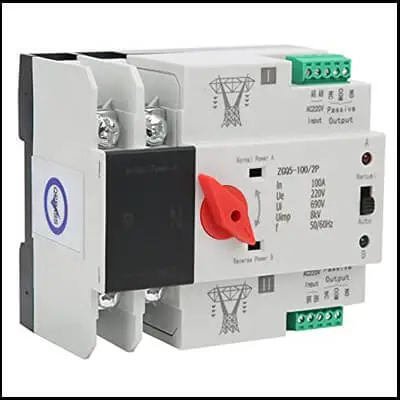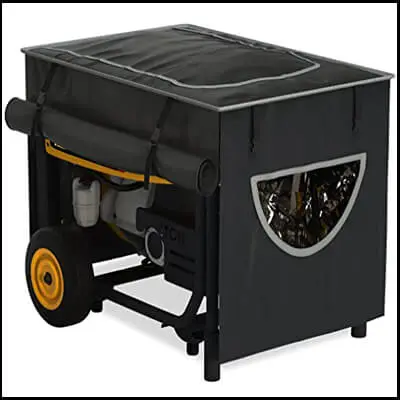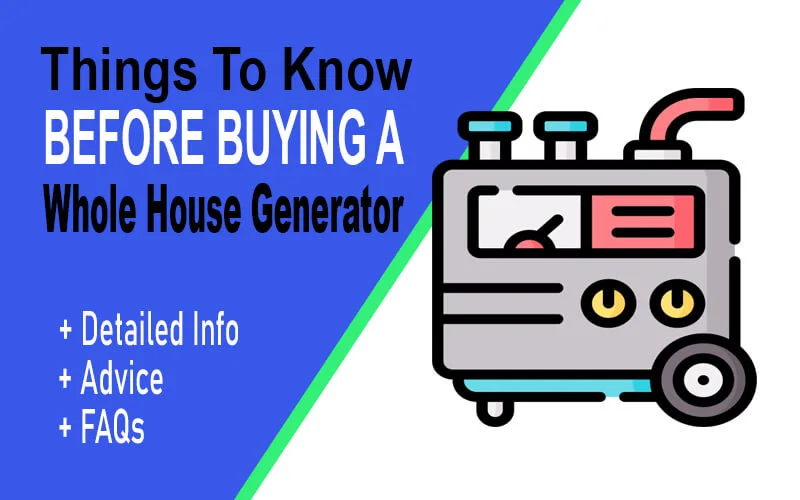5 Things To Know Before Buying A Whole House Generator
It can be difficult to manage without power for an extended period of time. Whole house generators are a great way to ensure that you and your family are never left in the dark. Are you worried about buying a whole house generator? in this article we will help you choose a best gen set for you.
These generators can be used for various purposes, from providing backup power during an outage to powering your entire home during a natural disaster. In addition to being a great way to keep your family safe and comfortable, whole house generators can also be a significant financial investment.
A generator can be standby, portable or solar. A standby generator can not move from one place to another while a portable can be transported from one to another place. So, you can buy any according to your choice and ease.
What Do You Need To Know Before Buying a Whole House Generator?
A whole-house generator buyer should take into consideration several factors as:
Automatic Shutoff:
Buying a whole-house generator requires consideration of a few factors. The automatic shutoff is a crucial factor. Automatic shutoff refers to the generator shutting itself off when it senses the power has been restored. This is an important safety feature to have, as it prevents the generator from continuing to run when it is not needed. Without this feature, the generator could overheat and cause damage to your home.

Type of Enclosure:
The enclosure is the generator’s housing, and it must be tough enough to protect it from the elements. There are three types of enclosures for standby generators-open, semi-open, and enclosed. The type of enclosure you choose will be based on how much sound reduction you need, how much weather protection you need, and how much security you need.
- Open standby generators are the least expensive and have minor sound reduction. Their weather resistance and security are also the lowest.
- Semi-open standby generators are more expensive than open standby generators but have more sound reduction. They are also more weather resistant but are not as secure as enclosed standby generators.
- Enclosed standby generators are the most expensive but have the best sound reduction, weather protection, and security.

Generator Capacity
The generator’s capacity must be determined. Depending on the size of your house and the number of electronic devices you have, you will need a different system. A rule of thumb is to choose a generator that can provide at least double the power of what you need to run your household.

Generator Fuel Source
It would be best to decide which fuel source you would like to use. Natural gas, propane, and gasoline are the most commonly used fuel sources.
For example, natural gas is the most affordable option but requires a connection to a natural gas line. Propane is a bit more expensive than natural gas but is not as dependent on weather conditions. Gasoline is the most expensive option, but it is the most convenient option since you can fill up your generator with gas when it runs out.

Warranty and Delivery
Before purchasing a whole house generator, it would be best to keep a few things in mind.
- First, make sure to check the warranty. Most whole house generators will have a warranty of at least 3 years.
- Second, keep in mind the delivery time. Most generators will be delivered within 2 weeks, but some may take up to 4 weeks.
- Check the return policy last. If you are dissatisfied with a generator, you can return it within 30 days.

How big of a generator do I need for a 2000 sq ft house?
IIf you have a 2000 square ft house, you’ll probably need a generator of at least 1000KWh. When determining how big a generator should be for a 2000 square foot house, several factors must be taken into account.
- One crucial factor is the amount of power required to run all home appliances and electronics.
- Considering the area’s climate and weather is another important factor. If the area is prone to extreme weather conditions, a more significant generator may be needed to provide enough power to keep the home running during a power outage.
FAQs: Buying A Home Generator
Conclusion
A whole-house generator should be purchased based on a few factors.
- Firstly, you need to consider the installation cost and the generator itself.
- Second, ensure that your home’s electrical system is compatible with the generator.
- Finally, you’ll need to factor in the ongoing cost of maintenance and operation.
Your family and home will benefit from considering all these factors.



![Diffuser vs Humidifier vs Vaporizer: [+Differences] 2023](https://prohouseideas.com/wp-content/uploads/2023/01/diffuser-vs-humidifier-vs-vaporizer-768x480.webp)
![How to Transport a Generator the Right Way? [+Safely] 2023](https://prohouseideas.com/wp-content/uploads/2022/09/how-to-transport-a-generator-768x480.webp)
![Solved – How to Clean a Dehumidifier? [+Step by Step] 2023](https://prohouseideas.com/wp-content/uploads/2023/01/how-to-clean-a-dehumidifier-768x480.webp)

![Secret! How Long Do Water Softeners Last? [+Maintenance] 2023](https://prohouseideas.com/wp-content/uploads/2022/08/how-long-do-water-softeners-last-768x480.webp)